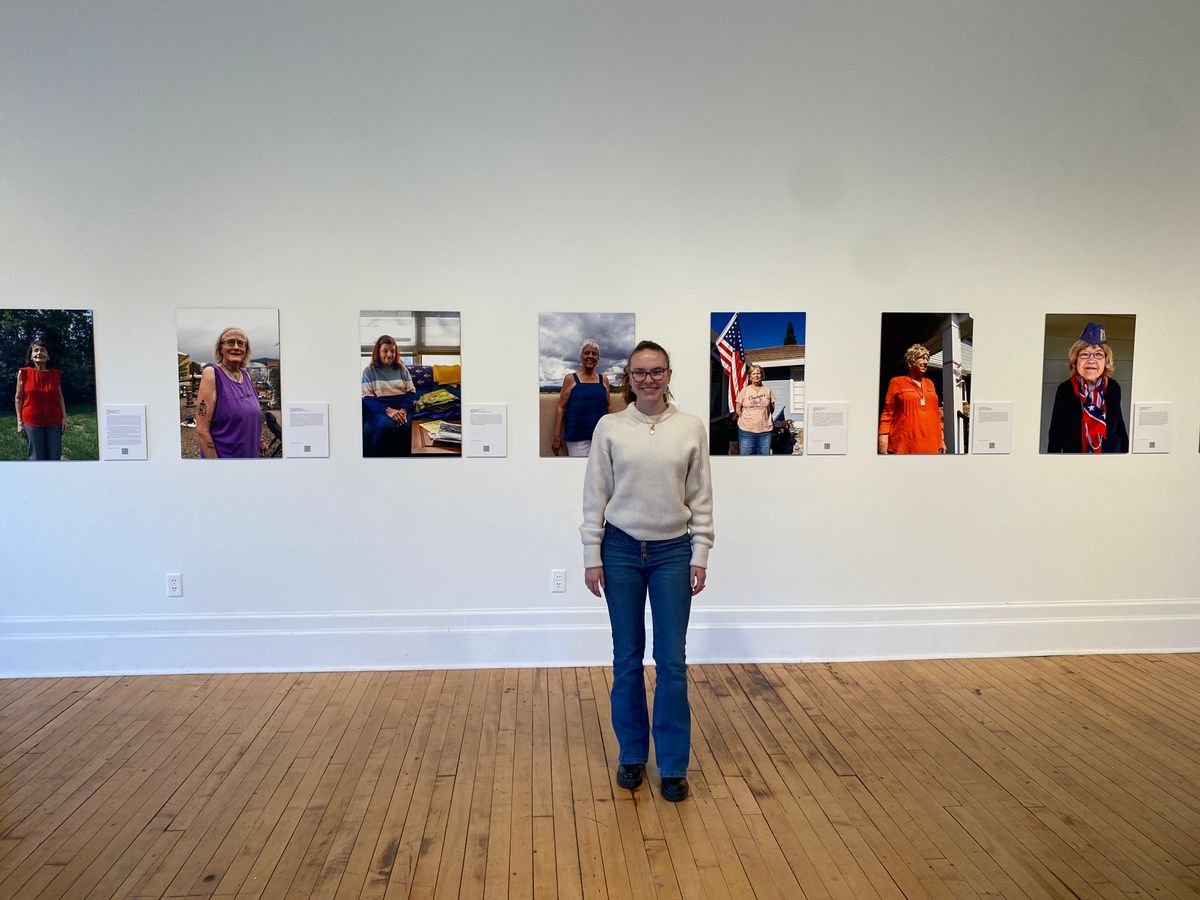Archiving Vietnam Veterans’ Stories: A Thesis Exhibition
Starting this Thursday, Dec. 1, studio art major Emma Spencer’s ’23E thesis show, “So, What’s a Nice Girl Like You Doing In A Place Like This?” will be available for viewing. Spencer’s project, consisting of both photography and film, catalogues the stories of female Vietnam War veterans.

From Dec. 1 to 18, Emma Spencer’s ’23E multimedia thesis show, “So, What’s a Nice Girl Like You Doing In a Place Like This?” will be available for viewing in Fayerweather Hall. In her show, Spencer, a studio art major, explores the personal histories of female Vietnam War veterans through intimate photographs, recorded interviews, a short film, and more.
Spencer began working on the project as a high school junior in 2017, when a photography teacher suggested that she create a database of Vietnam veterans. Spurred on by the recent Ken Burns documentary, “The Vietnam War,” as well as her grandfather’s service in the war, she began interviewing and photographing veterans in her area, culminating in an exhibition during her senior year.
Spencer took a break when she got to Amherst, but eventually resumed the project after taking a class about the experiences of American soldiers. Her professor helped her apply for a Project for Peace grant, awarded to students aiming to be agents of change in their communities, but due to Covid-19, she was unable to continue her research until a year later in 2021.
Originally, Spencer’s project only included men, but she realized that the experiences of female veterans were essential to include after meeting Maryanna Heister, a woman who enlisted in the Army during the Vietnam War. “I honestly didn’t even know there were women [in the war],” Spencer admitted.
Once she interviewed Heister, she decided that she wanted to use her thesis to explore the stories of female veterans. “I wanted to do something that’s different and hasn’t been done,” Spencer said. “And I also wanted to honor these women.”
With the help of Diane Carlson Evans, a nurse in the war and the founder of the Vietnam Women’s Memorial in Washington, D.C., Spencer reached out to a number of female veterans, all of whom responded saying they were interested in the project.
With funding from Amherst, Spencer interviewed 20 women and photographed those she met in person. As with the other veterans she had interviewed in the past, the women were eager to share their stories, Spencer said. Many had never spoken about their time in Vietnam, even though they had experienced horrors as Red Cross nurses or visited men in combat to cheer them up, acting as “Donut Dollies.”
This was a deeply personal project for Spencer. She noted that it was incredibly difficult to explore these histories, but a necessary endeavor nonetheless. She said that the support she received was invaluable, both from the college and especially from her thesis advisor, Sonya Clark, the Winifred L. Arms professor in the arts and humanities and professor of art and the history of art. The college’s backing, coupled with her family’s connection to Amherst (her grandfather left for Vietnam immediately after graduating from Amherst), made it vital to showcase and ground her work here.
Now, the Eli Marsh Gallery in Fayerweather Hall is filled with Spencer’s work. The stark walls contrast the life-sized photographs of veterans, accompanied by short descriptions of the women’s service and QR codes linking to recordings of them talking about their experiences. The photos hang alongside maps depicting the veterans’ hometowns and where they were stationed in Vietnam. Other archival documents, such as copies of the women’s personal photos and Spencer’s grandfather’s items from Vietnam, are available for viewing in the center of the room.
Just to the side is a screen showing Spencer’s short film — approximately five minutes of footage she took out of the window of the plane while traveling to visit these women, overlaid with poetry written by veterans Susan O’Neill and Penni Evans. Spencer noted that she created the film to let the women she profiled speak on their own terms, rather than through her perspective. “A lot of this project is my view of these women,” she said. “I’m photographing them [and] I’m projecting them in a certain way.”
Other veterans have also written about their time in Vietnam: Spencer even named her show, after a memoir of the same name written by veteran Dr. Sandra Lockney Davis, whom she also interviewed.
Spencer noted that the exhibition showed only white women and that her first iteration portrayed only white men. However, she plans to continue the project after graduation with a focus on veterans of color. “I would love to focus on the women of color who were in Vietnam,” she said. “There are very, very few organizations that exist [for them].”
After graduation, Spencer will visit Vietnam, and she hopes to expand the project further with a team. “I feel like I’ve actually done as much as I could on my own and left no stones unturned,” she said.
Spencer hopes that the project may transform into a book or a documentary. Additionally, the entire project, “Vietnam War Veterans: Then and Now,” will be archived in the Library of Congress’ Veterans’ History Project.
The exhibition will be open to the public from Dec. 1 to Dec. 18 in the Eli Marsh Gallery. The opening reception will be held on Thursday, Dec. 1 at 5 p.m.. It is recommended that guests bring their own earbuds and phones to listen to the audio accompanying each photograph. In addition to the physical exhibition, Spencer’s complete project, with all of its nearly 70 interviews and numerous archival documents, is available at vvthenandnow.com.




Comments ()